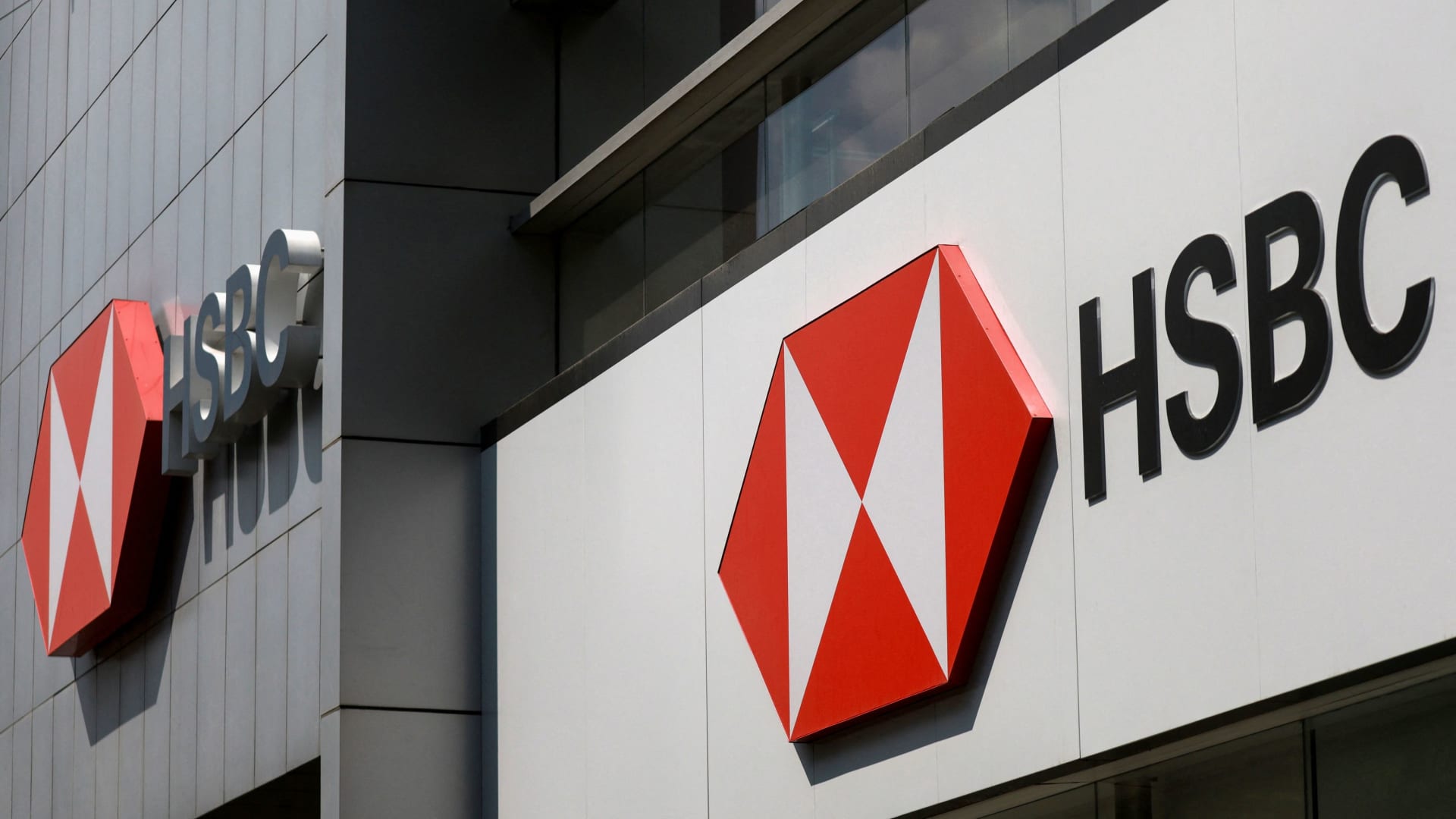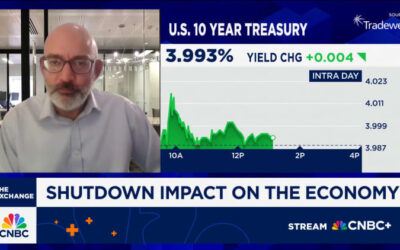HSBC’s third-quarter profit drops 14%, beats estimates

Two HSBC bank logos are displayed on an office building in Mexico City, Mexico, July 25, 2025.
Henry Romero | Reuters
Europe’s largest lender HSBC on Tuesday beat third-quarter profit expectations as the bank’s net interest income rose while performance of its wealth segment was also robust.
The bank’s profit before tax for the three months ended in September was $7.3 billion, down nearly 14% from a year ago due to higher operating expenses, namely from notable items, including legal provisions of $1.4 billion.
Here are HSBC’s second-quarter 2025 results compared with consensus estimates compiled by the bank.
- Profit before tax: $7.3 billion vs. $5.98 billion
- Revenue: $17.8 billion vs. $17.05 billion
The lender expects banking NII of $43 billion or more in 2025, citing rising confidence in the near-term trajectory for policy rates in key markets such as the United Kingdom and Hong Kong. It forecast double-digit percentage average annual growth in fee and other income from its wealth division over the medium term.
The provisions include $1.1 billion set aside for potential payout over claims related to the Bernard Madoff investment fraud case.
The Madoff case stems from a 2009 lawsuit by Herald Fund SPC against HSBC’s Luxembourg arm, seeking the return of securities and cash allegedly lost in the fraud.
The court rejected the HSBC unit’s appeal on the securities restitution claim, though it accepted its challenge about the cash portion.
HSBC said it plans to file a further appeal with the Luxembourg Court of Appeal and, if that fails, it will dispute the final amount in later proceedings.
“The intent with which we are executing our strategy is reflected in our performance this quarter, despite taking legal provisions related to historical matters,” HSBC Group CEO Georges Elhedery said.
HSBC’s net interest income for the third quarter rose 15% year on year to $8.8 billion, according to the earnings release.
The bank on Monday said the $1.1 billion provision will trim its Common Equity Tier 1, or CET1, capital ratio by roughly 15 basis points. The CET1 ratio is a key indicator of a bank’s financial strength.
Earlies this month, HSBC announced plans to take its subsidiary Hang Seng Bank private, valuing it at over HK$290 billion ($37 billion).
Elhedery had said that the deal underscores HSBC’s confidence in Hong Kong’s role as a “leading global financial center. Hang Seng’s non-performing loan ratio rose to 6.69% in the first half of 2025 amid continued stress in the property sector.
HSBC shares in Hong Kong were up 1.47% following the earnings release.
—CNBC’s Lim Hui Jie contributed to this report.
<





